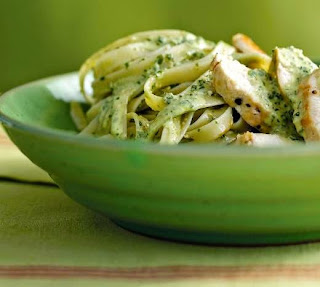When we insist on our own way, our own destinations, our own will, we may find ourselves left behind in places we do not want to be. With thoughtless and impatient hands
We tangle up the plans The Lord hath wrought.
And when we cry in pain He saith,
‘Be quiet, man, while I untie the knot.’
Unknown
….the most powerful Being in the universe is the Father of your spirit. He knows you. He loves you with a perfect love. God sees you not only as a mortal being on a small planet who lives for a brief season He sees you as His child. He sees you as the being you are capable and designed to become. He wants you to know that you matter to Him. May we ever believe, trust, and align our lives so that we will understand our true eternal worth and potential. May we be worthy of the precious blessings our Heavenly Father has in store for us is my prayer in the name of His Son, even Jesus Christ, amen.
Dieter F. Uchtdorf
We must remember that the only true evidence of our worth comes from the Lord, and it comes only in one way: by the presence and the gifts of the Spirit in our lives.
“From Whom All Blessings Flow”
April 1997
Neal A. Maxwell
My thanks to the First Presidency for this opportunity during which, as you can see, the lights combine with my cranium to bring some different “illumination” to this pulpit. As to my illness, treatments to date have proved encouraging, so I gladly express my deep gratitude for having come “thus far”.
Brothers and sisters, if I have any entitlement to the blessings of God, it has long since been settled in the court of small claims by His generous bestowals over a lifetime.
I express special appreciation for the faith and prayers of a loving and nursing wife and family, the Brethren and their wives, my secretary, hundreds and hundreds of members and friends, and for caring and very competent doctors and nurses. Heavenly Father has surely responded to their meritorious prayers and efforts. These, your gifts, are already a spiritual spur to me. I truly feel unworthy, but I am not unappreciative. My love and thanks to all of you!
Something I have heard President Hinckley do many times publicly is to give all the glory, the praise, and the honor to God. This is something I am going to do more often, including today, incorporating my appreciation for God’s tutoring and blessings.
Uncertainty as to our longevity is one of life’s basic realities for all of us. Hence, you and I should importune in faith for the blessings we deeply desire, but then be “content with the things which the Lord hath allotted unto us”. Clearly our individual exit routes from this life vary; so does the timing.
There are many who suffer so much more than the rest of us: some go agonizingly; some go quickly; some are healed; some are given more time; some seem to linger. There are variations in our trials but no immunities. Thus, the scriptures cite the fiery furnace and fiery trials. Those who emerge successfully from their varied and fiery furnaces have experienced the grace of the Lord, which He says is sufficient. Even so, brothers and sisters, such emerging individuals do not rush to line up in front of another fiery furnace in order to get an extra turn! However, since the mortal school is of such short duration, our tutoring Lord can be the Schoolmaster of the compressed curriculum.
The redeeming presence of our loving Father-God in the universe is the grand fact pertaining to the human condition. It is the supernal truth which, along with His plan of happiness, reigns preeminent and imperial over all other realities. Other truths, by comparison, are merely fleeting factoids about which we may be “ever learning” without coming to a knowledge of the grand truths.
Mortal experience points evermore to the Atonement of Jesus Christ as the central act of all human history. The more I learn and experience, the more unselfish, stunning, and encompassing His Atonement becomes!
When we take Jesus’ yoke upon us, this admits us eventually to what Paul called the “fellowship of Christ’s sufferings”. Whether illness or aloneness, injustice or rejection, etc., our comparatively small-scale sufferings, if we are meek, will sink into the very marrow of the soul. We then better appreciate not only Jesus’ sufferings for us, but also His matchless character, moving us to greater adoration and even emulation.
Alma revealed that Jesus knows how to succor us in the midst of our griefs and sicknesses precisely because Jesus has already borne our griefs and sicknesses. He knows them firsthand; thus His empathy is earned. Of course, we do not comprehend it fully any more than we understand how He bore all mortal sins, but His Atonement remains the rescuing and reassuring reality.
No wonder, of all the things for which we might praise Jesus when He comes again in majesty and power, we will praise Him for His “loving kindness” and His “goodness”; moreover, we will go on praising Him forever and ever! We will never need to be coaxed….
.. my humble praise … flows not only to God the Father for His loving plan of salvation and to Jesus, the Lord of the universe, for His marvelous and remarkable Atonement, but also to the Holy Ghost, about whom we speak less. Among His many roles I express my particular and personal gratitude today for the recent ways in which He has been the precious Comforter, including in the mid-night moments!
In the holy name of Jesus Christ, amen.

























